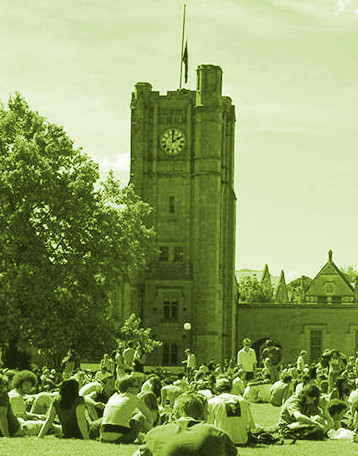Happiness helped by uni change
 A new study has found countries that help working class students get into university have happier citizens.
A new study has found countries that help working class students get into university have happier citizens.
The European study suggests that ‘inclusive’ educational policies that help working class students access higher education, such as delaying streaming children according to their ability until they are older, lowering the cost of private education, and increasing the intake of universities so that more students can attend all act to reduce the ‘happiness gap’ between the rich and poor.
Previous studies have shown that the more educated people are, the happier they tend to be.
Unfortunately, it is also the case that children from privileged, wealthy backgrounds tend to do better at school and are more likely to go to university than children from poorer working class backgrounds.
This means that by the time they reach adulthood, there is a big ‘happiness gap’ between middle class kids and their peers from disadvantaged backgrounds.
But it appears that the link between social class and happiness can be moderated by educational policies that offer more opportunities to disadvantaged children.
Using data from the European Social Survey - a European wide survey carried out every two years since 2002 to calculate the life satisfaction and happiness of almost 15,000 people aged 18-29 years from a total of 25 countries – researchers looked at the impact of four different education policies on the wellbeing of citizens.
These included streaming, or tracking children according to ability at a young age; providing low cost education to all; allowing universities to increase their number of places so that more young people could attend; and giving students a second chance to go to university if they did not get the right grades.
The results showed that, as expected, young people from privileged social backgrounds were more satisfied with their life than those from disadvantaged backgrounds. However the size of this disparity was affected by the types of educational policies adopted by European countries.
For example, in countries that delayed streaming, or tracking children according to ability until a later age, there was a negligible difference in life satisfaction between different social classes.
“The age at which children were streamed had no effect on the wellbeing of middle class students, however children from impoverished backgrounds were significantly happier when streaming age was delayed,” says Björn Högberg from Umeå University, who led the study.
People from disadvantaged backgrounds were also happier in countries where the average cost of education was low, where universities increased their enrolment size, and when universities allowed second chance opportunities.
The gap in happiness between social classes was largest in Hungary and Bulgaria, where children are streamed at a very young age and there are limited second chance opportunities provided for students to go to university.
The UK and Germany also had significant 'happiness gaps', which in the UK was due to the very high costs of private education and the low enrolment levels of British universities.
Denmark, on the other hand was one of the most equal country in terms of the happiness of its citizens.
It also had the most inclusive educational policies - tracking pupils at an older age, providing low cost private education, and giving children generous second chance opportunities to go to university.








 Print
Print